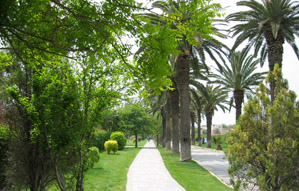The Agricultural University of Athens Highlights the “Fava Cycle in the Greek Islands” as an Element of Greece’s Intangible Cultural Heritage

An initiative by the Institute of Plant Genetic Resources of the Agricultural University of Athens
We are delighted to announce the Ministerial Decision approving the registration of the element “The Fava Cycle in the Greek Islands” in the National Inventory of Intangible Cultural Heritage of Greece.
This new registration continues the research on local traditional varieties, which had also been previously included in the Inventory under the title “Local and Indigenous Agricultural Varieties: Knowledge and Practices”, an initiative undertaken by the Agricultural University of Athens.
The Institute of Plant Genetic Resources of AUA submitted the inventory dossier in collaboration with local authorities and individuals, including:
the Union of Thiraean Product Cooperatives, the Agricultural Cooperative of Atsiki (Limnos), the Municipality of Skyros, the Agricultural Cooperative of Chora (Amorgos), the Karsana Association of Lefkada, the Community Council of Karya, the Tinian Studies Society, as well as:
in Karpathos: Michalis Lentakis, Marina Lentaki, Roula Chouvarda–Papavasili,
in Limnos: Athina Kavaleris,
in Tinos: Nikos Konstantinou Alberti,
and in Naxos: Lavra Protopapadaki.
The dossier was compiled by researchers Penelope Bebeli, Andromachi Economou and Rikos Thanopoulos.
Fava is an ancient dish still traditionally consumed today across most Greek islands. It is prepared from split cotyledons of legume seeds originating from local varieties of five botanical species (Grass pea, Cyprus vetch, Spanish vetchling, pea and broad bean). Farmers on each island have developed their own cultivation and processing techniques according to local tradition.
In traditional island communities, fava is part of both the everyday and festive diet, creating a unique food culture. They are also associated with a wide range of verbal and symbolic practices and continue to feature prominently in local cuisine as well as in modern gastronomic creations.
According to the Ministerial Decision, the preparation of fava “constitutes a key product of the dietary culture of the Greek islands, contributing both to the enhancement and promotion of the cultural identity of island regions, and to the preservation and strengthening of the productive identity and taste memory of island communities, as well as their sustainable development.”
This registration applies to all Greek islands where agricultural plants are cultivated from seeds used to produce fava.
The initiative and coordination of this process were led by Dr. Penelope Bebeli, Director of the Laboratory of Plant Breeding & Agricultural Experimentation and Director of the Institute of Plant Genetic Resources of the Agricultural University of Athens.



